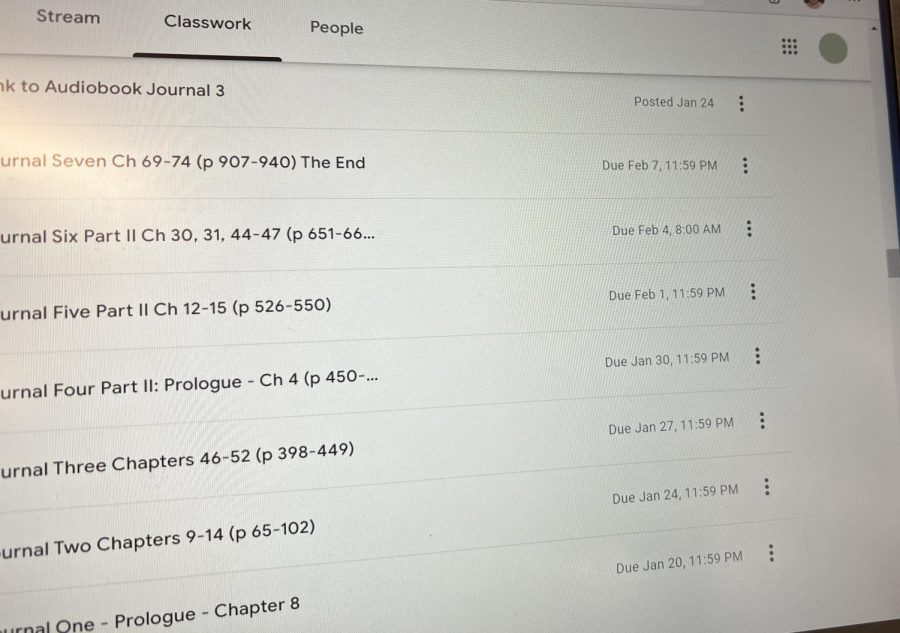In a post-pandemic academic landscape, perceptions of school norms are shifting, and one pillar of education may be crumbling as we know it: deadlines.
Just over two years after the onset of the pandemic, the effects of distance learning on students, teachers and the larger school community have become glaringly apparent. After eventually getting accustomed to online learning, students were thrown into a hybrid schedule only to eventually come back to normal, forcing them to re-learn how to interact with peers and manage structure again. Teachers were forced to navigate an entirely foreign teaching landscape online, resulting in burnout when it came time to return to the building.
The pandemic’s academic implications were inevitable, but what is the solution? Some feel it is greater uniformity at the high school level.
PVHS Principal Darren Erickson explained recent discussions surrounding more uniform late policies. “This came up from both our work in professional development looking at best practices and grading and instruction as well as from feedback from our student survey given a few months ago,” he shared. “One common issue students mentioned is having inconsistency [in] expectations between their classes and teachers. They say it can make things confusing as well as having them prioritize classes based on policies and not their learning needs.”
Erickson acknowledged that while greater uniformity may be desired from teachers when it comes to late work policies, there is no simple solution. Regardless, it is an undoubtedly positive sign that administration has been so receptive to student feedback; however, it may be coming at the expense of teachers.
While deadlines will not be completely obsolete, some have been pushing for more leniency, like making all assignments due at the end of each unit. However, as English teacher Robyn Samuelson pointed out, this can deprive students of necessary checkpoints.
“Students and teachers must adhere to deadlines to ensure learning is happening as it should,” she said. “Most curricula build from unit to unit and teachers must assess for understanding before moving forward.”
Samuelson continued, “For writing teachers, deadlines help keep grading piles workable. Late work is already difficult to assess with deadline policies in place, and the looser the deadline policy, the more late work there is to grade.”
After experiencing record levels of stress and burnout, more last-minute work to grade is the last thing teachers desire.
“Teachers should be able to have a policy that works for their course material, meaning I don’t think a uniform policy is necessary or desirable,” Samuelson said. “Discretion is an essential component of effective instruction; teachers must be able to make decisions on a case-by-case basis.”
Many students share Samuelson’s sentiment. As an academically driven student, senior Chloe Isbell feels that variety in late policies among teachers is beneficial. “I appreciate that different teachers have different expectations regarding deadlines. For my teachers that are more lax about them, I still try to get my work done on time, but I know it won’t be the end of the world, for either of us, if it is not turned in exactly on time,” she said. “In a way, it helps me learn how to prioritize.”
This is a critical skill for students, especially as they move on to college and other post-secondary plans.
However, senior Alyse Zuiderveen, who also takes challenging courses, felt that rather than teaching her how to prioritize, some deadlines have caused her excessive stress. “There have been countless times when I have had multiple teachers assign large quantities of homework for rigorous courses due the next day and I’ve felt concerned because many courses deduct 50% of potential points for late work,” she shared. “In the past, I’ve had to sacrifice my ability to give my best effort on assignments because I knew that though I could submit high-quality work past the teacher’s deadline, the deduction I would receive for the tardiness of my work would far surpass the points I would lose if I did not do my best work.”
Zuiderveen feels the correct approach to deadlines would be extending grace to students. “If we as a district truly want our students involved in a variety of courses and activities, we must extend grace but do so in a consistent manner across courses so students have a clear understanding of when their work is due,” she said.
Interestingly enough, Samuelson also feels reasonable grace periods are critical to the classroom. “I do think it is essential to both have deadlines and be flexible. Research shows a very solid approach is to have a standard 24 hour grace period,” she said. “Longer grace periods result in work being forgotten and never turned in.”
Essential in resolving issues surrounding deadlines at PVHS is teacher-student collaboration. While the future of late policies at the high school is unclear, it is critical that both perspectives are considered.









